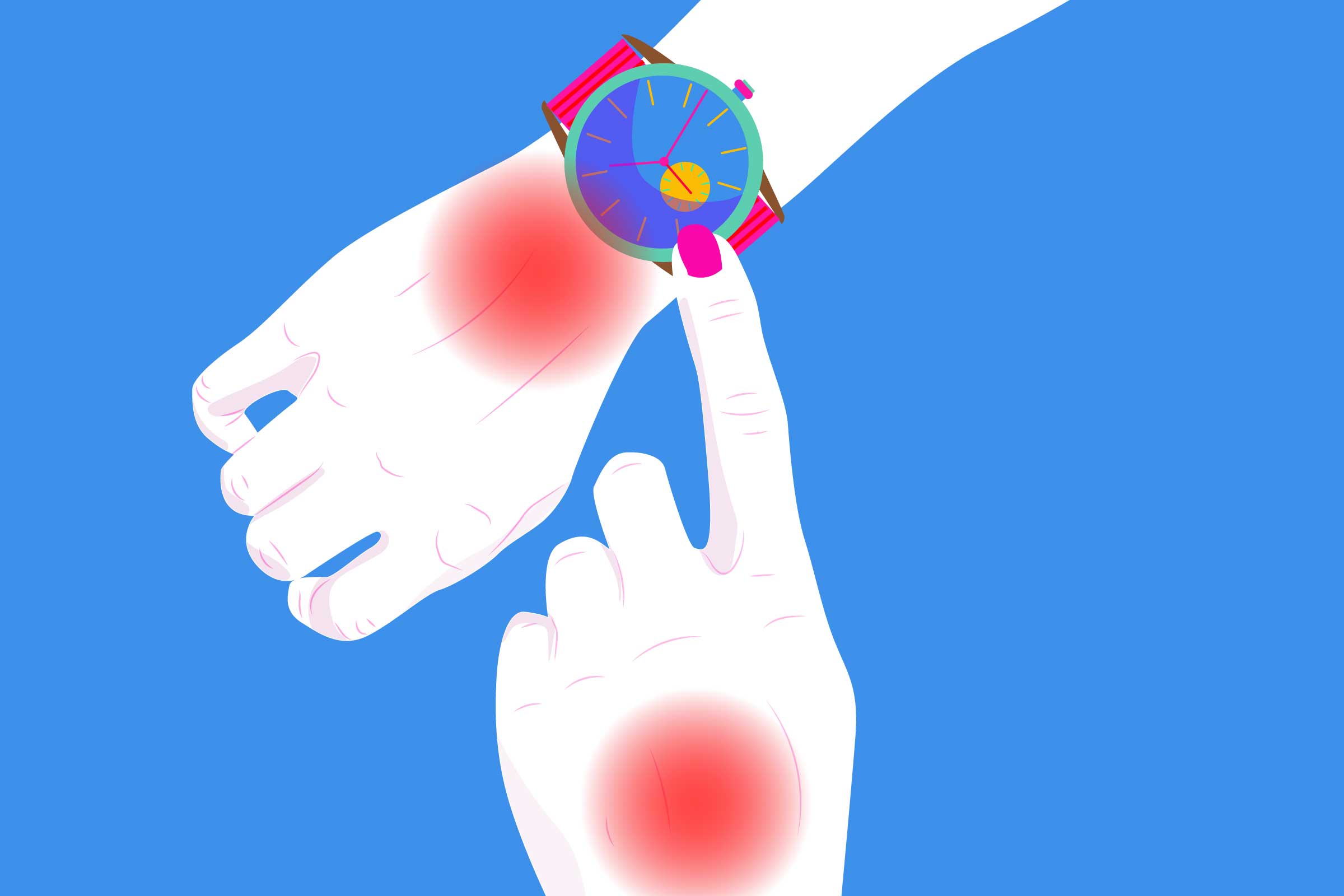

Key Takeaways
- C-reactive protein (CRP) is a protein that rises in the bloodstream when inflammation is present.
- Currently, CRP is measured by blood tests.
- Wearable sensors that detect CRP through small amounts of sweat are now being developed.
Lung disease, rheumatoid arthritis, inflammatory bowel disease, and chronic bacterial infections are diverse conditions that often require frequent monitoring of C-reactive protein (CRP), a protein that rises in the bloodstream during periods of high inflammation. Measuring CRP is valuable for assessing disease activity, predicting flares, and evaluating treatment response. Currently, the most common method of measuring CRP levels is through blood tests, which necessitate visits to health care facilities or clinics. However, excitingly, new technology is on the horizon to change that.
Recently published research suggests that individuals with inflammatory conditions may soon be able to monitor their CRP levels at home, thanks to the development of wearable sensors capable of detecting CRP in sweat.
Researchers have been diligently working on creating these wearable sensors that can detect CRP in sweat, and enable individuals to track their inflammation levels without the need for frequent blood tests. This advancement opens up new possibilities for patients with inflammatory conditions, providing a less invasive and more user-friendly approach to manage and monitor their health.
Some patients may choose to wear these sensors continuously, receiving alerts when potential issues arise — similar to how individuals with diabetes use continuous glucose monitors (CGMs) to monitor their blood sugar levels. (It’s worth noting that while current CGMs use a small needle to measure glucose beneath the skin, ongoing developments in glucose-measuring sweat sensors are also underway.)
Promising Advances in Sweat-Based CRP Detection
One such notable advancement in this field, published in Nature Biomedical Engineering, originates from the California Institute of Technology. A group of researchers, led by Jiaobing Tu, has developed a wireless sensor capable of measuring CRP levels using small amounts of sweat. Their primary focus was on creating a sensor to monitor CRP in individuals with chronic obstructive pulmonary disease (COPD). Such monitoring can be valuable in tracking disease progression and determining whether a flare-up is caused by a bacterial infection, necessitating antibiotic treatment.
Tu and colleagues designed a wireless sensor that effectively measures CRP levels in tiny amounts of sweat, which are secreted throughout the day. Importantly, heavy perspiration is not required for the sensor’s accurate functioning. “The wearable sensor performs autonomous sweat extraction, collection, biomarker analysis, are wireless data transmission on-demand across daily human activities in individuals who are sedentary,” explained researchers.
To ensure accuracy, the researchers also compared CRP levels measured by the sweat sensors with CRP blood test results. They found “a strong correlation between CRP levels in sweat and serum.”
Moving Toward Commercialization: Addressing Unmet Needs
While further research is needed to validate and bring this product to the market, researchers believe that the reported wearable technology holds promising potential to offer personalized, quantitative information about inflammation. It could potentially address the unmet needs of patients with inflammatory diseases and their caregivers.
At the same time, other scientists are working on developing similar technology tailored for people with inflammatory bowel disease (IBD). Several studies have already validated a sweat-sensing device that measures CRP and other inflammatory markers, bringing it closer to becoming available in the market.
What You Should Know
While advancements in wearable sensors for detecting CRP levels in sweat show promise for the future, the current standard for CRP testing still involves blood tests. Your doctor may order a CRP test based on your specific condition, whether it’s to monitor your progress, evaluate treatment effectiveness, aid in diagnosing inflammatory and autoimmune diseases, or assess remission status as part of a comprehensive test panel.
It is important to consult with your doctor to determine the most appropriate tests for your individual needs.
Be a More Proactive Patient with ArthritisPower
ArthritisPower is a patient-led, patient-centered research registry for joint, bone, and inflammatory skin conditions. You can participate in voluntary research studies about your health conditions and use the app to track your symptoms, disease activity, and medications — and share with your doctor. Learn more and sign up here.





